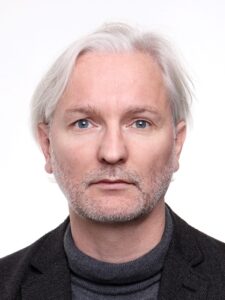
Snowmass 2021 process
In the U.S., the Snowmass 2021 process will take place over the next year. Organized by the Division of Particles and Fields (DPF) of the American Physical Society (APS), this process is intended to define the most important questions for the particle physics community and to identify the most promising ways to address these questions in a global context. Snowmass provides an opportunity for the entire HEP community to come together to identify and document a vision for the future of particle physics in the US and its international partners. Given the increasing importance of interdisciplinary work, a strong participation of related fields such as astrophysics, cosmology, gravity, nuclear physics, accelerator physics, AMO and materials science is expected.
Between autumn 2020 and summer 2021 there will be a series of preparatory meetings and workshops organized by Snowmass conveners from ten frontiers (energy, neutrino, rare processes & precision, cosmic, theory, accelerator, instrumentation, computation, underground facilities, and community involvement).
The Frontier Conveners are nominated by the community and selected by the DPF Executive Committee plus members of the chair lines of Division of Astrophysics (DAP), Division of Physics of Beams (DPB), Division of Nuclear Physics (DNP) and Division of Gravitational Physics (DGRAV). Their first task is to identify topical group conveners. This process was developed in order to provide a diverse and representative leadership including junior and senior researchers, theorists and experimentalists, and balance regarding gender, geographical distribution, and background.
Besides there is the Steering group, which consists of the DPF Chair line and one representative each of the related units DAP, DPB, DNP, and DGRAV. This Steering group oversees the process and meets regularly with the Frontier Conveners. An inclusive Advisory Group is consulted on major decisions, and consists of the Steering Group plus the rest of the DPF Executive Committee (members at large, secretary/treasurer, and councillor), an editor, a communication liaison, and a set of International Advisors.
One of these International Advisers is Berrie Giebels as representative for APPEC.
Berrie Giebels defended his dissertation in 1998 and was a research associate at SLAC for 3 years. Since 2001 he is physicist at CNRS in the field of high energy astroparticle physics (Fermi, HESS, CTA). Since 2016 he is IN2P3/CNRS deputy director in charge of the astroparticle physics & cosmology perimeter including the large research infrastructures (EGO-Virgo, CTA, LSST, KM3NeT, Auger,..).
„The Snowmass Process, while essentially aimed at developing a vision for the future of particle physics in the U.S., is also a very inclusive process – thematically, integrating other fields of research such as astroparticle physics, and geographically, through the inclusion of the international community in its advisory group. Participating to this process as a European scientist is a unique opportunity to reach beyond our currently closed borders and reaffirm that research in physics relies on worldwide cooperation and collective goals. The APPEC roadmap objectives and priorities should provide valuable insights to shape the Snowmass 2021 vision, which will in return have an influence on the next European Astroparticle physics strategy update.“ – Berrie Giebels
To optimally engage all participants in the process, the Division of Particles and Fields invites the international community to submit written documents. Given the increasing importance of interdisciplinary work in related fields such as astrophysics, cosmology, gravity, nuclear physics, accelerator physics, AMO, and materials science, members of the Divisions of Astrophysics, Gravitational Physics, Nuclear Physics, Physics of Beams and members of other units with a connection to particle physics are strongly encouraged by the DPF Chair, Young-Kee Kim to participate in this process:
Letters of Interest (submission period: April 1, 2020 – August 31, 2020)
Letters of interest allow Snowmass conveners to see what proposals to expect and to encourage the community to begin studying them. They will help conveners to prepare the Snowmass Planning Meeting that will take place on November 4 – 6, 2020 at Fermilab. Letters should give brief descriptions of the proposal and cite the relevant papers to study. Instructions for submitting letters are available at https://snowmass21.org/loi. Authors of the letters are encouraged to submit a full writeup for their work as a contributed paper.
Contributed Papers (submission period: April 1, 2020 – July 31, 2021)
Contributed papers will be part of the Snowmass proceedings. They may include white papers on specific scientific areas, technical articles presenting new results on relevant physics topics, and reasoned expressions of physics priorities, including those related to community involvement. These papers and discussions throughout the Snowmass process will help shape the long-term strategy of particle physics in the U.S. Contributed papers will remain part of the permanent record of Snowmass 2021. Instructions for submitting contributed papers are available at https://snowmass21.org/submissions/.
The Snowmass homepage (https://snowmass21.org) provides you further information on the current status of Snowmass 2021.
Monthly Snowmass Newsletter:




